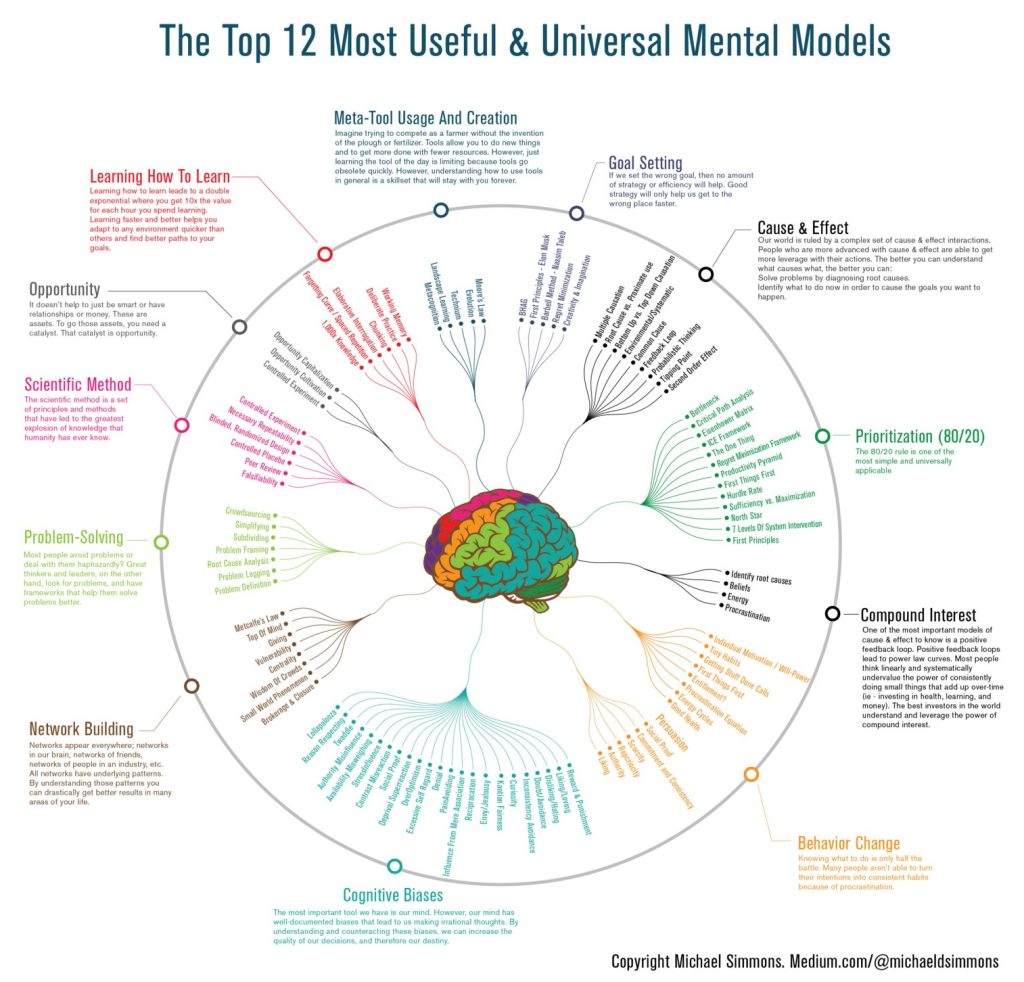Every year, we go to school as students. We work on assignments, quizzes, exams, case studies, research reports, etc. What are these all for? What is the true PURPOSE behind some of these activities? Is it to gain background knowledge on a topic? Is it because you’ll have to use that Calculus someday in the real world? These are all plausible and sometimes true for sure. BUT I think we often forget the last reason of what school is for, to teach us how to think. This is whereas the title states, mental models come in.
Why is it important to know how to think?
Let’s think about this question above. Your actions are simply the reflection of your thoughts. And your thoughts, they are the product of your thinking. Thinking allows us to make sense of, to interpret, to make decisions, to act, to know whether something is right or wrong… the list could go on forever. Psychology says thinking is the human process of using knowledge and information to make plans, interpret and model the world, and constructively interact with and make predictions about the world in general. Being able to think about certain things and situations differently will give you a perspective on life that you may never have known was possible.
How does this tie back into mental models?
A mental model is an interrelated set of beliefs that shape how a person forms expectations for the future and understands the way the world works. Mental models can shape how an individual thinks about or understands how something or someone does, can, or should function in the world.
For instance, knowing about network effects or about the law of diminishing returns helps you think about systems. Knowing about incentives or the availability heuristic helps you think about human relationships. Knowing about arbitrage and scarcity helps you think about markets and economic trends.

Let me give an example of mental models. Some of these you may have already heard of, whether it be Classical conditioning using pavlog’s dog, economies of scale, scarcity, normal distributions, etc. There are hundreds and they are all used to help structure the way people think about certain things.
In order to grow as a human being, you need to be able to identify mental models, whether you are using them, or the person you are talking to is. Ideally, you need to make it a conscious choice to use them or not, otherwise your brain’s automatic thinking will set you up to flow with these forms of thinking without every noticing.
I encourage you to read up on mental models, we will post more articles about them here in the future with examples, but as you learn more and more mental models, they will truly help you understand how the world works, how people think, and how to solve problems.
In the near future we will continue to provide more examples and articles on this topic, but in the meantime here are some links below on some resources to learn more:


